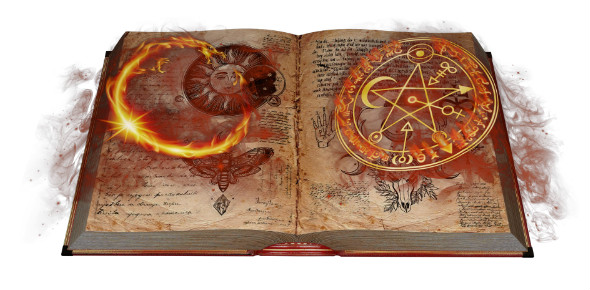
All humans dream. We spend a third of our lives sleeping, and a significant percentage of that time dreaming, usually entering the dream state four or five times a night. Dreams help us assimilate what has happened during the day. We use our dreams to solve problems, work out how we feel, and resurrect memories.
Dreams are conversations we have with ourselves. During the day our consciousness directs our attention and largely controls how we interact with the world. At night, as we sleep, other parts of our psyches present to us the observations they have made that consciousness missed. In dreams we explore desires and reactions that we cannot consciously acknowledge. Dreams form a safe space for us to try on other ways of being and acting. The dream world allows us to synchronize parts of ourselves.
We can help that synchronization process by remembering our dreams. When we review dreams during waking consciousness we can begin to integrate the lessons and experiments of the dream world into our daytime lives. Dreams tell us a great deal about ourselves. They spark our imaginations, helping us to dream big. They loosen up our magical muscles, helping us to focus on what it is we really do want, pointing our magic in the direction it needs to go to create happy lives.
Dreaming has its own language. By day, we experience ourselves as a single person, living in linear time, with one moment flowing into another. In dreams, we may jump from being one person in the dream to being an entirely different person. Time may flow forward or backward. We do things impossible for us in the daytime world, like jumping over buildings, walking across water, or flying.
Some images, objects, and experiences happen in our dreams again and again. Dream books interpret symbols as if they will always mean the same thing to everyone. Each of us has unique life experiences that give our dream images meanings that are particular to us. Remembering our dreams teaches us our own dream language. It may be immediately obvious what the dream symbol means. As the image comes back again we may gradually come to understand what it means. Or we can do an internal dialogue, asking the symbol to talk to us and explain itself to us.
Some dreams are exciting, some are pleasant, some are puzzling, and some are downright frightening. Nightmares show us our fears, force confrontations with things we don’t want to admit, and provide warnings about possible events in our lives. As we become more aware of our dreaming selves we learn to end nightmares by remembering we are dreaming and waking ourselves up.
The easiest time to remember a dream is right after dreaming it. Often we wake up after a dream cycle. We don’t usually remember this because we fall asleep right away. Now that we are determined to remember our dreams, however, we may find ourselves waking up more completely. At first we might only do this once or twice a night. As we work more and more with our dreams, we may find ourselves recording more dreams, up to five or six a night!
Dreams are a potent source of insight into ourselves. Remembering our dreams helps us tap into our own power.
Affirmation
I remember my dreams.
Practice: Send yourself on a magical journey
Put a pad of paper next to your bed. You can use your journal, or a special dream book, or just a scratch pad. The important thing is to be able to find it and write in it.
If you wake up in the morning and you haven’t recorded any dreams, see if you can remember the last dream you had before you woke, and record those. Keep giving yourself the affirmation before you go to sleep.
When you wake up after a dream, grab your pad and scribble a few notes about the dream. If you can’t turn on a light, you can still write, just keep your hand moving. You don’t need to record the entire dream. Focus on a few key words: “Bridge, lake, Tara, watch.” When you reread these, you remember that in the dream you were ten years old, crossing a bridge over a lake, on your way to seeing a woman named Tara, who in the dream was your sister, to give her a watch.
In the daytime you can work on the dream. First, you can record it in your journal with a few sentences. Now you can go back into the dream while you are conscious. The dream ended before you finished your task. Now see yourself back at the bridge. You walk over the lake, find Tara, and give her the watch.
You still aren’t sure who Tara is, and why you are giving her a watch. Ask the Tara in your mind, “Who are you?” and listen for the response. Tara may tell you she is there to teach you how important it is for you to relax. You realize you are giving her a watch so that you stop watching time so closely. You can jot a few notes about the work you have done in your journal.
#SecretsOfMagic

